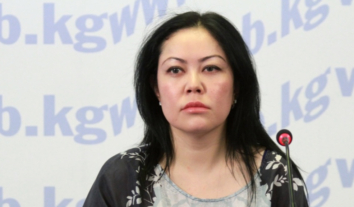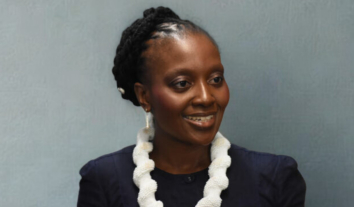Russia Is Becoming the Center of World Nationalism
There is an old wisdom, “A man is known by the company he keeps.” Let us find out who is Putin’s “company” in Europe.
This question arose after the pompous reception of Attack, a Bulgarian political party, in Crimea. During the meeting, Svetlana Savchenko, the State Council of Crimea Chairman for Culture, attended to “questions of the Russian world and Nazism as historical antipodes and the prospects for creating a common anti-fascist front.” At the same event, Magdalena Tasheva, a deputy of the Bulgarian Parliament from the party Attack, noted that their party members “were shocked by the Nazi coup in Kiev.”
On the party’s website it clearly shows that Attack is a nationalist party, known for its anti-Turkish actions and statements. I was wondering who else is “shocked by the Nazi coup in Ukraine” and which parties could enter the Russian “anti-fascist front.” Clearly, these are the parties that the Russian government cooperates with, and, more importantly, that support Russian politics. Let us see who they are.
According to the Russian media, the head of French struggle against the State Department is the leader of the National Front, Marine Le Pen. Her statements on America attacking Russia from the territory of Ukraine are eagerly quoted by RT, TASS, RIA-Novosti and other Russian media. By the way, National Front is an ultra-nationalist party. Its main idea is French nationalism.
kraine, too, has a similar party, Svoboda. But, during the elections after the “coup by the Nazi junta,” it did not pass the electoral threshold, despite previously being in the parliament. This can only be explained by Ukrainians not wanting to bring the nationalists to power.
Serbia has its own nationalist party – the Serbian Radical Party. Its head, Vojislav Seselj, is a nationalist who spent 11 years in the bullpen of the Hague Tribunal on charges of “the genocide of non-Serbs.” He is credited with the phrase “I hate the Croats so much that I would be happy to scoop out their eyes with rusty spoons to be sure that there is blood poisoning.” So, the party accuses NATO of war in Ukraine and demands to recognize the independence DNR and LNR.” LifeNews presents their opinion as the demand of all the Serbian people.
Golden Dawn in Greece is an openly neo-Nazi party, and this is not even a secret in Russia. The party declared that there is a “Zionist conspiracy” in Ukraine. They strongly condemned the Right Sector and Svoboda. They expressed their solidarity with Russia and are demanding the lifting of sanctions. In May, the party leadership came to Moscow. There they met with Aleksandr Dugin, the ideologue of Russian Nazism and an advisor to Sergey Naryshkin, the Chairman of Russian State Duma.
Jobbik is an ultra-nationalist political party in Hungary. It is known for its anti-Roma (they demand to take children from Roma families and place them in boarding schools) and anti-Semitic statements. At the same time, they are ardent supporters of Putin. So ardent that in May they were accused of espionage for Russia.
In June 2014, Johann Gudenus, one of the leaders of the Freedom Party of Austria, arrived in Moscow. He was invited by the State Duma Speaker SergeyNaryshkin. In Moscow Gudenus declared that the blame for the Ukrainian crisis lies with the European Union, which is leading a “Russophobe policy” and has become “a hostage of NATO.” The party he represents was founded in 1956 by former Wehrmacht officers and Nazi Party members.
In the UK, the British National Party. In Germany, the National Democratic Party of Germany. In Poland , the National Radical Camp-Falanga. The list goes on. Representatives of these parties were in Crimea and Donbas during referendums. They all believe that the US is responsible for the war in Ukraine, demand recognition of the independence of DNR and LNR, and consider Crimea to be Russian. Their position fully coincides with the position of the Russian government. At the same time, in Europe they are seen as nationalists. This is not surprising when we remember that the idea of the “Russian world” is the basis of Putin’s politics. Crimea was seized, explaining that it was part of the “Russian world.” Donbas is being fought for in the name of the “Russian world.” All of the country’s domestic and foreign policy is explained by the sacred foundations of the “Russian world.” It is clear to see that these are openly nationalist politics. Not surprisingly, the majority of nationalists in Europe favor it.
Center for Journalist Investigations
Photo itandlife.ru














